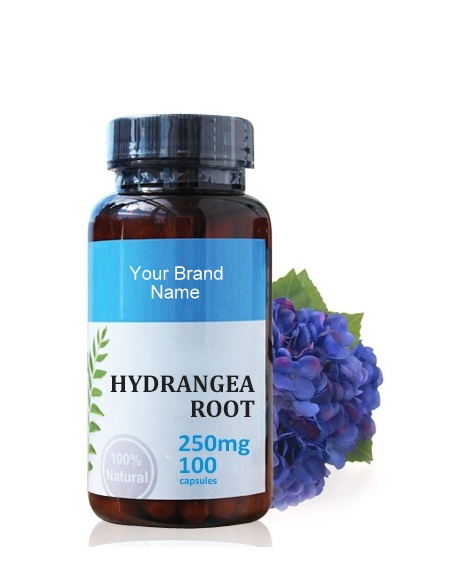Hydrangea, scientifically known as Hydrangea arborescens, is a flowering plant native to the Americas and Asia. It is widely recognized for its ornamental beauty, but lesser-known are its medicinal properties. For centuries, various indigenous cultures have utilized different parts of the hydrangea plant for therapeutic purposes. The root, in particular, has been of interest due to its potential health benefits. Hydrangea supplements have gained attention in recent years for their diverse range of health-promoting effects. This comprehensive guide explores the multifaceted benefits of hydrangea supplements, drawing upon both traditional knowledge and modern scientific research.
Historical and Cultural Significance
Throughout history, hydrangea has been utilized in traditional medicine by indigenous cultures in North America and Asia. Native American tribes such as the Cherokee and Iroquois employed hydrangea root as a remedy for urinary tract issues, kidney stones, and various inflammatory conditions. In traditional Chinese medicine, hydrangea was used to support kidney and bladder health. The plant’s medicinal use has persisted over time, with hydrangea supplements becoming increasingly popular in modern herbal medicine.
Urinary Tract Health
One of the primary benefits associated with hydrangea supplements is their potential to support urinary tract health. Hydrangea root has diuretic properties, which may help increase urine flow and promote the elimination of toxins and waste products from the body. Additionally, hydrangea is believed to have antilithic properties, meaning it may help prevent the formation of kidney stones by reducing the concentration of minerals in the urine. Some research suggests that hydrangea supplements may help alleviate symptoms associated with urinary tract infections and kidney stones, such as pain, inflammation, and urinary discomfort.
Anti-inflammatory Effects
Hydrangea contains bioactive compounds that possess anti-inflammatory properties, making it beneficial for reducing inflammation throughout the body. Chronic inflammation is associated with various health conditions, including arthritis, autoimmune disorders, and cardiovascular disease. The anti-inflammatory effects of hydrangea supplements may help alleviate pain, swelling, and stiffness associated with these conditions, improving overall quality of life.
Kidney Health
Hydrangea is believed to support kidney health and function, making it a valuable herb for promoting overall renal well-being. Some research suggests that hydrangea supplements may help protect the kidneys from damage caused by oxidative stress and inflammation. Additionally, hydrangea’s diuretic properties may help improve kidney function by increasing urine production and promoting the elimination of waste products. Regular consumption of hydrangea supplements may help support kidney health and reduce the risk of kidney-related disorders.
Digestive Health
Hydrangea supplements may also support digestive health by promoting proper digestion and relieving gastrointestinal discomfort. Hydrangea contains compounds that stimulate the production of digestive enzymes and bile, which aids in the digestion of fats and promotes regular bowel movements. Additionally, hydrangea’s anti-inflammatory properties may help soothe inflammation in the digestive tract and alleviate symptoms of conditions such as gastritis, indigestion, and irritable bowel syndrome (IBS).
Antioxidant Protection
Hydrangea contains antioxidants, including flavonoids and phenolic compounds, which help protect the body from oxidative stress and damage caused by free radicals. Oxidative stress is implicated in the development of various chronic diseases, including cancer, cardiovascular disease, and neurodegenerative disorders. The antioxidants in hydrangea supplements help neutralize free radicals, reduce inflammation, and support overall health and longevity.
Bone Health
Some research suggests that hydrangea supplements may support bone health and reduce the risk of osteoporosis. Hydrangea contains minerals such as calcium, magnesium, and phosphorus, which are essential for maintaining healthy bones and teeth. Additionally, hydrangea’s anti-inflammatory properties may help reduce inflammation in the joints and prevent bone loss associated with chronic inflammatory conditions such as arthritis. Regular consumption of hydrangea supplements may help support bone density and reduce the risk of fractures and bone-related disorders.
Usage and Dosage
Hydrangea supplements are available in various forms, including capsules, tablets, tinctures, and teas. The appropriate dosage can vary depending on the specific health goal and individual factors such as age, weight, and overall health status. It’s important to follow the manufacturer’s instructions or consult a qualified healthcare practitioner to determine the appropriate dosage for you.
Safety and Side Effects
Hydrangea supplements are generally considered safe for most people when used as directed. However, some individuals may experience side effects such as gastrointestinal upset, allergic reactions, or interactions with certain medications. Pregnant and breastfeeding women should consult a healthcare provider before using hydrangea supplements. Additionally, individuals with kidney disorders or thiamine deficiency should use hydrangea supplements cautiously and under the guidance of a healthcare provider.
Conclusion
Hydrangea supplements offer a wide range of potential health benefits, from supporting urinary tract health and kidney function to reducing inflammation, promoting digestive health, and supporting bone health. Backed by centuries of traditional use and increasingly supported by scientific research, hydrangea stands out as a valuable herbal supplement for enhancing vitality, resilience, and overall well-being. Whether used for specific health concerns or general health maintenance, hydrangea supplements can be a beneficial addition to a holistic health regimen. However, as with any supplement, it’s important to use hydrangea cautiously and consult a healthcare provider to ensure it’s appropriate for your individual health needs and conditions. With its rich history and versatile therapeutic effects, hydrangea continues to captivate and inspire individuals seeking natural ways to support their health and well-being.
- Benefits of Hydrangea Supplements - April 1, 2024
- Benefits of Horsetail Supplements - April 1, 2024
- Delta 10 Products By Just Delta-Diving into Delta 10 Delights: A Personal Review of Just Delta’s Diverse Products! - March 14, 2024

